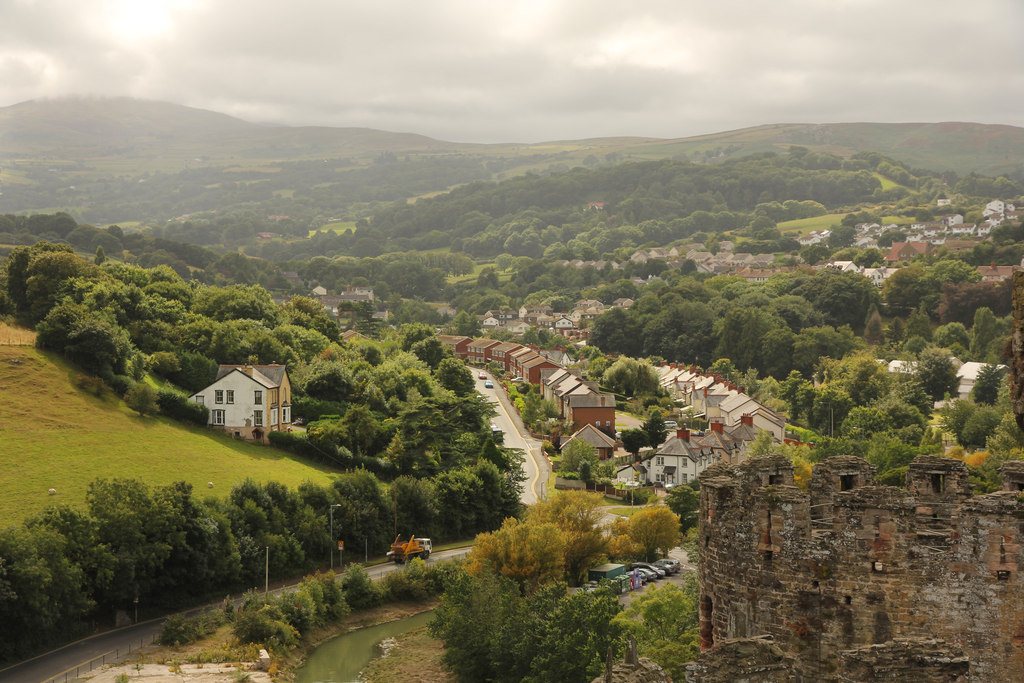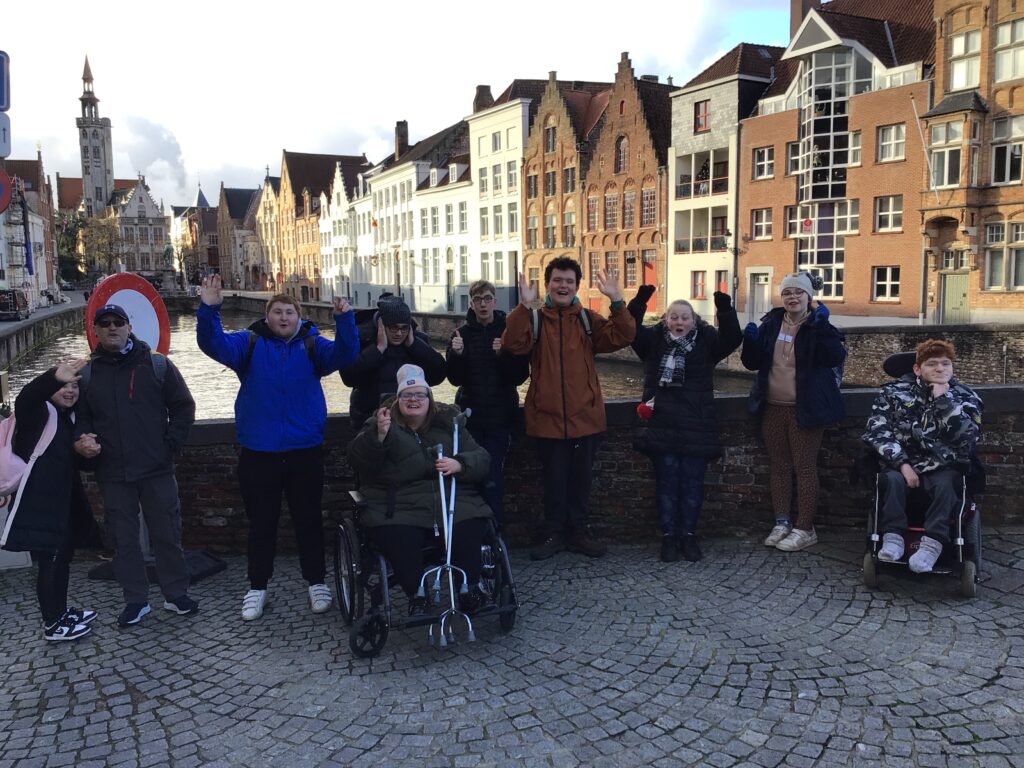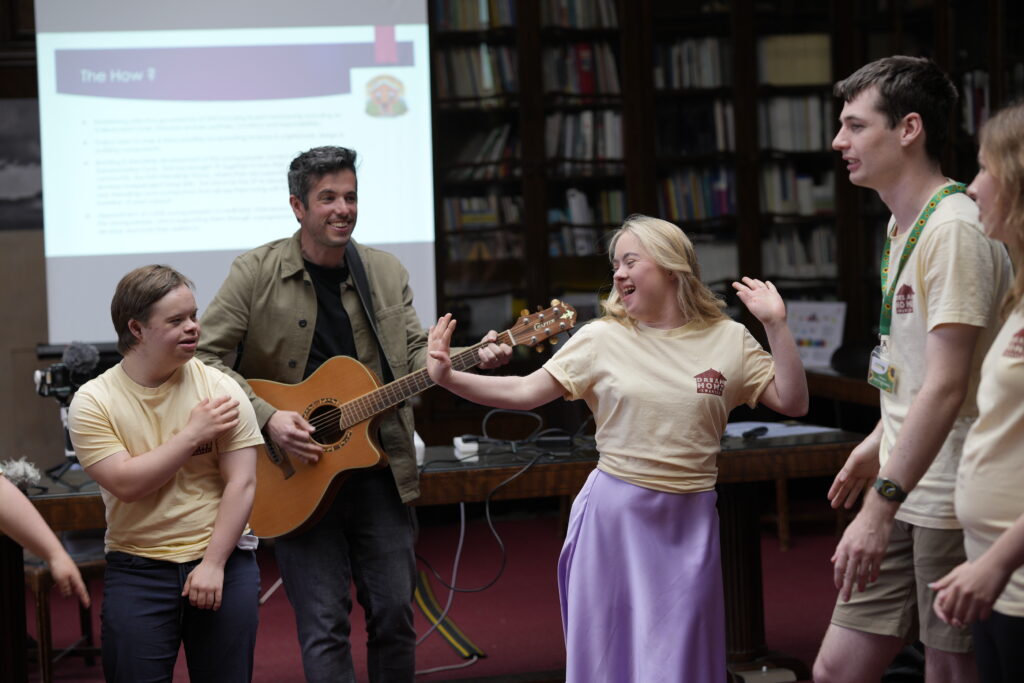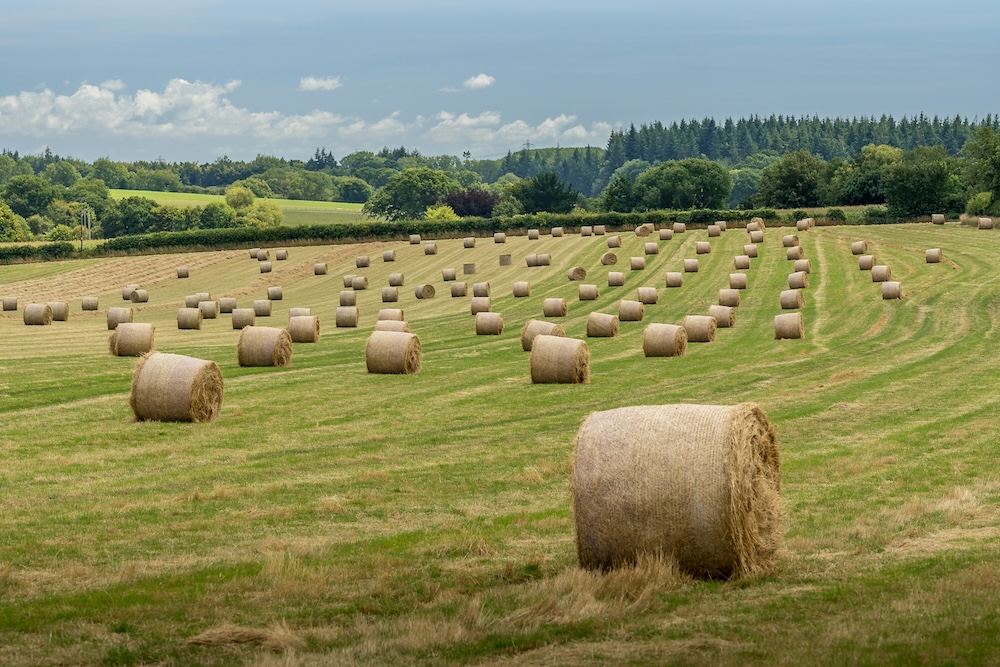This is the analysis of responses to our third and final set of Big Questions. This time focussing on what the next Welsh Government should do to support Welsh Places.
To support this work, the IWA has convened the Welsh Places Influencing Group – a partnership with organisations and practitioners embedded in the world of place-making policy.
The group has developed a Charter setting out a vision for Welsh Places rooted in stronger democracies, and increased prosperity and wellbeing.
We have also recommended interventions the next Welsh Government can make to strengthen democracy at a local level.
The responses to these questions from the parties are quite revealing, more by what they don’t mention than what they do. In the heat of the final run up to a Wales-wide election, parties can be forgiven for foregrounding commitments around national voting and taxation.
However, a consistent theme within most of the responses has been devolving the ability to make decisions to a local level, without also setting out how they would ensure the resources are in place to back up this decision making. I will return to this below.
1. In order for Wales’ places to build back better from the effects of the pandemic and economic shutdown we need to see power redistributed back to our communities. We also need communities of place which are welcoming for those from diverse backgrounds and with protected characteristics.
We believe all communities should have
- the tools to better understand their area
- the voice to represent their needs to decision makers
- the means to make a change in the places where they live and work.
What will your party do to strengthen local democracy for everyone in Welsh communities?
Three of the parties have mentioned reform of the voting system. This is welcome, and long overdue – and we have supported calls by the Electoral Reform Society and others to introduce Single Transferable Vote in Wales (read more here).
Not all the parties made clear whether they would also mandate these reforms in local government elections, though perhaps this can be assumed.
However there is a wider point, which is that strengthening local democracy should go well beyond voting in elections every five years or so.
This is why one of our calls is to create a grant to support local authorities to introduce deliberative democracy tools such as participatory budgeting and citizens’ assemblies.
The Welsh Conservatives have set out a proposal for local referenda to give local people a direct say on ‘excessive’ council tax rises above 5%.
Whilst this demonstrates a welcome commitment to the principle of involving people in decisions, there is a risk that one-off referenda on predetermined issues represent too narrow an approach, as well as representing a potentially significant cost to local government.
The raising of taxes is unlikely to be popular when presented without context in a referendum. However, a truly participatory budgeting process may reveal sincere support for an increase in local taxes.
Particularly when there is a commitment to spend the money raised on priorities identified by residents as part of an ongoing process of engagement, and where the trade offs in local spending decisions are set out with transparency.
Innovative. Informed. Independent.
Your support can help us make Wales better.
This approach will require not just resourcing but a culture change: an ability to trust community members and accept risk.
Our question also touches on the issue of who within a community gets to have a say.
Labour and Plaid set out proposals to improve the representation of women and people from black, Asian and other minority ethnic backgrounds in public life – again at a Senedd level. This is an issue which writers on this site have covered previously.
It is worth pointing out that tried and tested techniques indicate that it is party decisions, rather than Welsh Government support, that are most effective at ensuring gender parity of elected politicians.
Mechanisms such as All Women Shortlists have had considerable success in increasing the number of female MPs and MSs.
In the 2021 Senedd election 50% of Labour candidates, 41% of Plaid Cymru candidates, 34% of Conservative candidates and 29% of Liberal Democrat candidates are women.
However, analysis has shown that 55% of Labour’s women candidates are in winnable seats, 47% of Plaid Cymru’s are, 19% of female Conservative candidates are, and only one Liberal Democrat female candidate is in a winnable seat.
Similar steps towards more diverse representation will need to be taken in local elections. But, again, participation cannot just be about elections. So it is useful to look more closely at what some of the barriers are to more effective democracy at a more local level.
For example, Plaid were the only party to specifically highlight the potential of an enhanced role for Town and Community Councils with greater planning and economic development powers.
However – whether we are talking about Town and Community Councils, or self-organising community groups – effective decision making and management of local assets takes both time and hard graft.
Some members of communities of place will find it easier to expend that time and effort – which is often unpaid – than others. So any move to devolve power without additional resource risks further entrenching existing inequalities within communities. We must avoid a situation where only affluent people with time on their hands are able to engage in local democracy.
This is why we have recommended a Town and Community Council Development Fund. This would fund development officers to enable the creation of new Town and Community Councils, and support existing ones to improve.
For example, if they identify skills gaps in their membership, want to source training, or seek independent expert advice.
Democracy cannot be done on the cheap, especially if we want to enable participation from a wider and more representative range of people.
2. Often communities who are in the most need don’t have the capacity to focus on writing and developing funding bids.
How would your party support communities to develop grass roots project proposals which will help them build back better after the pandemic?
Our Charter made a specific recommendation for a Community Enabling Fund for communities to scope and design project proposals which will help them build back better after the pandemic.
Most parties set out complementary proposals which we’ll look at in a moment, but it’s fair to say that none of them quite endorsed this specific idea. So let’s address the two problems we think it solves.
First, writing funding bids takes time and hard graft (there’s a theme here). Second, whilst the next Welsh Government will almost certainly continue to offer grant support for local projects in various forms, government grants will not (and should not) be the only game in town for community groups with a good idea.
We want to see a Community Enabling Fund which offers small grants solely to help community groups better resource their bid writing. This could be spent on something as simple as individuals taking a few days’ unpaid leave to work on a bid, or to buy in some independent advice or consultancy.
Again this should help all groups who might otherwise find themselves pulling together bids in their evenings and weekends, and finding those bids are not as good as they could have been.
But it will particularly help groups who – again – are less able to find that time around their other commitments, levelling the playing field.
The fund should also signpost groups to funders such as charitable foundations who are likely to support the specific type of grassroots projects they are developing, and help them navigate the complex processes this can involve.
Robust debate and agenda-setting research.
Support Wales’ leading independent think tank.
We hope the next Welsh Government will pick up and develop this idea, but what about the other ideas the parties put forward?
Plaid, the Conservatives, and the Lib Dems all refer to various forms of community asset transfer, something we have also called for in our Charter. We have heard about numerous positive examples of these over the last year via our #RethinkingWales series of events.
But let’s take a moment to notice something about this approach. Community asset transfers as a policy are consistent with the whole spectrum of political philosophies. So it’s not at all jarring to see both Plaid and the Conservatives endorsing them, albeit in slightly different ways.
However, for all its positives, the policy takes as its starting point an assumption of a reduced role for the state. This assumption can contain a number of different components.
It can be a post-austerity assumption that the government will not (rather than should not) step in and offer this service or facility, so the only way to save it is for the community to take it on.
It can also be a principled view that this is simply not the role for the state, either because of a sincere belief that a small state is better, or a sincere view that communities will do a better job of managing these assets because they value them.
None of these points of view are problematic in and of themselves – and of course they are matters of political philosophy.
But it is only right that we acknowledge that not all communities are equally well placed to step up to the demands of filling a gap in a smaller state – whatever ideology underpins it.
The word that sums this up is ‘resilience’, and it links both to the need for greater support from government as set out above, and the issue of faith in local democracy.
I recently undertook a routine cull of Twitter accounts I was following, and there was a veritable graveyard of long dormant ‘Save [Treasured Local Facility]’ accounts.
People in Wales, a nation within a devolved union which is one of the richest countries in the world, may have a reasonable expectation that the state will deliver high performing, responsive public services.
Community Asset Transfers can indeed be hugely positive, even inspiring – but they cannot be used to paper over cracks in what people want the state to provide.
Where this line sits is a matter of political judgement, but for some communities those cracks are wider and deeper than for others.
The IWA is currently working with our partners The Means on research to explore what Covid has taught us about the resilience within Wales’ diverse communities. More on that soon.
3. Data is increasingly seen as an essential service. But too often data and evidence about Welsh places is hard to find, hard to understand, or not available at all.
Improving the collection and presentation of data at a community level would both strengthen the evidence-base for informed local decision making and empower people to improve their communities.
What plans does your party have to improve the accessibility, quality and presentation of data and evidence so that it can be easily used by local communities?
This question is rooted in the IWA’s own collaborative efforts to democratise data via the Understanding Welsh Places website, which brings together publicly available data about all towns in Wales with more than 2,000 residents into an engaging and interactive front end.
It’s a data website for non-data geeks. It’s fun – go play with it.
In terms of the principle that data should be an ‘essential public service’, this is another area where an important political consensus should really lead to improvements, whoever the next Welsh Government is.
To briefly run through the positive proposals we’ve seen: the Conservatives have pointed to a need to revamp StatsWales and make it more accessible.
Labour have pointed to its existing Digital Strategy and plans to build on it. Plaid have focused on the infrastructure needed to underpin access to data.
The Lib Dems have highlighted the need for Welsh research institutions to continue to be able to access post-Brexit funding, and therefore continue to generate good quality data, and the Greens have emphasised the role of data and evidence in local delivery plans.
The collection, presentation and use of data that is specific to Wales has not consistently kept pace with devolution. In the past I have found this has made it harder to compare the Welsh Government’s performance on – for example – certain housing issues, with those in other UK nations.
So this creates something of a gap in accountability. Comparing Wales with other UK nations shouldn’t be the only end goal of improving our data collection, of course.
The Future Generations (FG) framework means Wales is trying to achieve different things, and therefore measuring different things.
But we should be cautious about replacing robust metrics with less road-tested ones, and overlooking delivery on bread and butter issues which matter to people.
Advocates of a wellbeing agenda or wellbeing economics often point to the need to downgrade GDP or GVA as the metric of what makes a nation successful. This isn’t an election prediction blog, but it’s a safe assumption that the next Welsh Government will retain a commitment to this principle, and to the FG Act.
So we need to get better at measuring wellbeing. The current indicators don’t cut it. Too many of them use a small number of data points within the National Survey for Wales as proxy measures for much wider wellbeing themes.
The annual Wellbeing in Wales reports are often prose-heavy and make use of different data each year, making comparison over time difficult.
The risk this creates is that any public body aiming to get a good report card from the Future Generations Commissioner is incentivised to hit the target on those metrics, but potentially miss the point.
GDP will never cease to be an important thing to understand and measure as even if we don’t target growth in the same way, we will still need to know whether the economy is growing or not.
Discussions and debates that drive Wales forward.
Join Wales’ leading independent think tank.
For wellbeing to hold the same sway over policy making, we should aspire to have significantly more robust measures of it.
Metrics which can compete with GDP (or GVA in Wales) on the criteria of ‘Does this measure what it claims to measure?’, and ‘We tried something, did it work?’.
This can only make it easier for any public servants under the FG Act’s remit to make the shift to a more holistic way of working.
Developing these metrics may be less inspiring than setting out the vision of the Wales we want, but it is hard for public servants to make different decisions when they are faced with a choice of either delivering something measurable or something which is not.
The IWA’s colleagues at the Carnegie UK Trust have begun the work of developing a high level metric to rival GDP.
The next Welsh Government needs to go deeper on how Wales measures its success on wellbeing, and how communities can access data and evidence of their delivery to help them to improve.
4. The pandemic has highlighted the challenges for places across Wales, specifically town centres. Many of our places are struggling in the wake of declining retail sales, lockdown restrictions, and changes in consumer behaviour.
What is your party’s vision of what vibrant town centres should look like, and what policies do you have to make this vision a reality?
Our Welsh Places Charter has endorsed stopping urban sprawl by maintaining a town centre first approach, rooted in reform of the planning system. This was originally called for in the Royal Town Planning Institute Cymru’s – Plan the Wales we Need, and they have produced their own analysis of party proposals.
However to return briefly to a recurring theme, we cannot have an effective planning framework with the resources and skills within local authorities to make it a reality. That’s why we have called for both increasing capacity in local planning teams, and investing in resources for improved engagement – particularly digitally.
This would be particularly important to support Plaid Cymru proposals to make management of town centres with 30 or more commercial premises a statutory responsibility for local authorities.
All parties have made commitments to either cut, freeze or waive business rates to help support the post-Covid recovery (with Labour, Plaid and the Greens going further by proposing various forms of rent restrictions).
Obviously such commitments on tax come with trade-offs in spending elsewhere, and we would point to Wales Fiscal Analysis’ overview of manifesto commitments for more on this.
Amongst the more interesting commitments are Labour’s proposal to put infrastructure in place at a local level to support 30% remote working, and the Lib Dems related commitment to ‘20 minute communities’.
These are not new ideas, but it will be interesting to see how they play out – again particularly in areas with a high proportion of workers who cannot work from home, or who have no choice but to commute outside their town for work.
It’s yet another reminder that the placemaking agenda should be mindful of who does and doesn’t benefit.
All articles published on the welsh agenda are subject to IWA’s disclaimer.
Picture credit: © Richard Croft -geograph.org.uk/p/4128095





